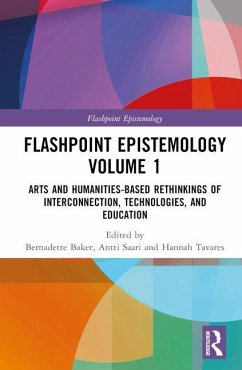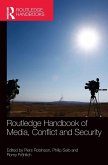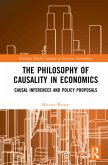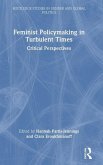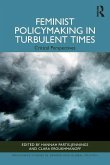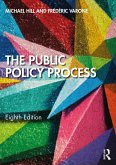The 21st century is steeped in claims to interconnection, technological innovation, and new affective intensities amid challenges to the primacy and centrality of "the human". Flashpoint epistemology attends to the lived difficulties that arise in teaching, policymaking, curriculum, and research among continuous practices of differentiation, and for which there is no pre-existing template for judgment, resolution, or action.
Flashpoint Epistemology Volume 1 examines contemporary collisions and reworkings of cultural-political issues in education through arts and humanities-based approaches. How and whether lines are (re)drawn in educational practice - and via who-what - between justice, morality, religion, ethics, subjectivities, intersectionality, the sublime, and the senses are a particular focus. The volume offers innovative relational approaches and new narrativization strategies, examining the aporia experienced when operating in educational domains of inevitable, recurring, difficult, fortuitous, and/or unforeseen flashpoints.
The chapters will engage researchers seeking new approaches to education's complexities, nested discourses, and ever-moving horizons of enactment. It will also benefit post/graduate students and teachers whose work intersects with sociological, philosophical, and cultural studies and who are curious about claims to interconnection, the ethical quandaries embedded in practice, and the affordances and limits of technological innovation.
Flashpoint Epistemology Volume 1 examines contemporary collisions and reworkings of cultural-political issues in education through arts and humanities-based approaches. How and whether lines are (re)drawn in educational practice - and via who-what - between justice, morality, religion, ethics, subjectivities, intersectionality, the sublime, and the senses are a particular focus. The volume offers innovative relational approaches and new narrativization strategies, examining the aporia experienced when operating in educational domains of inevitable, recurring, difficult, fortuitous, and/or unforeseen flashpoints.
The chapters will engage researchers seeking new approaches to education's complexities, nested discourses, and ever-moving horizons of enactment. It will also benefit post/graduate students and teachers whose work intersects with sociological, philosophical, and cultural studies and who are curious about claims to interconnection, the ethical quandaries embedded in practice, and the affordances and limits of technological innovation.
"Today's interconnected and interdependent world are bringing new levels of complexity, tensions and paradoxes, as well as new knowledge horizons and new ways to see, think and act. Who we are becoming, and where will our subjectivity and meaning as humans reside Flashpoint Epistemology series provides us the fundamental reflections toward the transformation of the world and its projections on education, policy making, curriculum and research.
The book series provides us with transdisciplinary and timely systems thinking and epistemological reflection at the level of philosophy, culture, politics, art and ethics, which enables us to be vigilant in understanding the complexity and variability of the time and to work with complexity and change.
'Consciousness is itself transformed by what it encounters, and so is the object that is encountered' (Martin Jay ,2005, 184) Today's education, policymaking, curriculum, and teaching are not lacking in specific techniques, strategies, and problem-solving methods, but in the profound and distinctive perspectives of consciousness-innovation explored in this epochal book series."
-Prof. Liya TU College of Education, Zhejiang University
"This two volume edition of 'Flashpoint Epistemology' is a must read for any educator interested in conducting and understanding research today. It provides an original insight of what 'Flashpoint Epistemology' is, particularly in relation to an interrogation of fixed ideas of place, home, death, life etc. It makes us challenge how complexities around these issues are forged, emerge and how they play out in modern day society - one which continues to be marred by risk, insecurity and instability. Original, insightful and totally engaging - an excellent contribution to research epistemologies."
-Professor Kalwant Bhopal FAcSS, Director, Centre for Research in Race and Education (CRRE)
"This two volume edition of 'Flashpoint Epistemology' is a must read for any educator interested in conducting and understanding research today. It provides an original insight of what 'Flashpoint Epistemology' is, particularly in relation to an interrogation of fixed ideas of place, home, death, life etc. It makes us challenge how complexities around these issues are forged, emerge and how they play out in modern day society - one which continues to be marred by risk, insecurity and instability. Original, insightful and totally engaging - an excellent contribution to research epistemologies."
- Professor Kalwant Bhopal FAcSS, Director, Centre for Research in Race and Education (CRRE), School of Education, University of Birmingham, UK
The book series provides us with transdisciplinary and timely systems thinking and epistemological reflection at the level of philosophy, culture, politics, art and ethics, which enables us to be vigilant in understanding the complexity and variability of the time and to work with complexity and change.
'Consciousness is itself transformed by what it encounters, and so is the object that is encountered' (Martin Jay ,2005, 184) Today's education, policymaking, curriculum, and teaching are not lacking in specific techniques, strategies, and problem-solving methods, but in the profound and distinctive perspectives of consciousness-innovation explored in this epochal book series."
-Prof. Liya TU College of Education, Zhejiang University
"This two volume edition of 'Flashpoint Epistemology' is a must read for any educator interested in conducting and understanding research today. It provides an original insight of what 'Flashpoint Epistemology' is, particularly in relation to an interrogation of fixed ideas of place, home, death, life etc. It makes us challenge how complexities around these issues are forged, emerge and how they play out in modern day society - one which continues to be marred by risk, insecurity and instability. Original, insightful and totally engaging - an excellent contribution to research epistemologies."
-Professor Kalwant Bhopal FAcSS, Director, Centre for Research in Race and Education (CRRE)
"This two volume edition of 'Flashpoint Epistemology' is a must read for any educator interested in conducting and understanding research today. It provides an original insight of what 'Flashpoint Epistemology' is, particularly in relation to an interrogation of fixed ideas of place, home, death, life etc. It makes us challenge how complexities around these issues are forged, emerge and how they play out in modern day society - one which continues to be marred by risk, insecurity and instability. Original, insightful and totally engaging - an excellent contribution to research epistemologies."
- Professor Kalwant Bhopal FAcSS, Director, Centre for Research in Race and Education (CRRE), School of Education, University of Birmingham, UK

